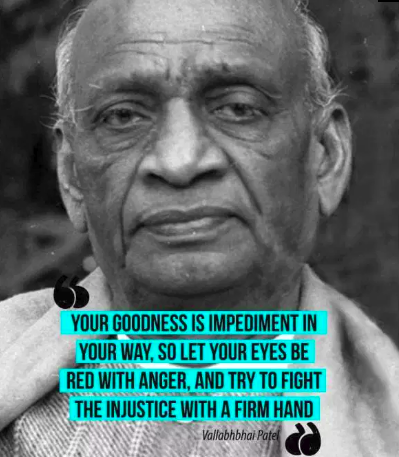
 Senior Congress leaders, led by Patel, violently opposed Nehru’s suicidal policy of appeasement with China, which led India to lose a peaceful border. – Claude Arpi
Senior Congress leaders, led by Patel, violently opposed Nehru’s suicidal policy of appeasement with China, which led India to lose a peaceful border. – Claude Arpi
On October 31, the world’s tallest statue, the Statue of Unity dedicated to Sardar Vallabhbhai Patel, was unveiled by Prime Minister Narendra Modi. The work on the 182-metre tall statue has been completed after round the clock work by 3,400 labourers and 250 engineers at Sadhu Bet island on Narmada river in Gujarat. Sadhu Bet, located some 3.5 km away from the Narmada Dam, is linked by a 250-metre-long long bridge.
Unfortunately, for several reasons, scarce scholarly research has been done on the internal history of the Congress; the main cause is probably that a section of the party would prefer to keep history under wraps. Take the acute differences of opinion between Sardar Patel, the deputy prime minister, and “Panditji”, as Nehru was then called by Congressmen. In the last weeks of Patel’s life (he passed away on December 15, 1950), there was a deep split between the two leaders, leading to unilateral decisions for the PM, for which India had to pay the heaviest price.
The most serious cause of discord was the invasion of Tibet by the Chinese “Liberation Army” in October 1950. In the course of recent researches in Indian archives, I discovered several new facts. Not only did several senior Congress leaders, led by Patel, violently oppose Nehru’s suicidal policy, but many senior bureaucrats too did not agree with the Prime Minister’s decisions and objected to his policy of appeasement with China, which led India to lose a peaceful border.
On November 11, 1950, the deputy prime minister of India addressed a meeting organised by the Central Aryan Association to commemorate the 67th death anniversary of Swami Dayanand Saraswati. It was to be his last speech. What did he say? The Sardar spoke of the potential dangers arising from what was happening in Tibet and Nepal, and he exhorted his countrymen: “It was incumbent on the people to rise above party squabbles and unitedly defend their newly won freedom.” He cited the example of Gandhi and Swami Dayanand.
Sardar Patel then criticised the Chinese intervention in Tibet; he asserted that to use the “sword” against the traditionally peace-loving Tibetan people was unjustified: “No other country in the world was as peace-loving as Tibet. India did not believe, therefore, that the Chinese government would actually use force in settling the Tibetan question.” He observed that the Chinese government did not listen to India’s advice to settle the Tibetan issue peacefully: “They marched their armies into Tibet and explained this action by talking of foreign interests intriguing in Tibet against China.” The deputy prime minster added that this fear was unfounded; no outsider was interested in Tibet. The Sardar continued by saying that “nobody could say what the outcome of Chinese action would be. But the use of force ultimately created more fear and tension. It was possible that when a country got drunk with its own military strength and power, it did not think calmly over all issues.” He strongly asserted that the use of arms was wrong: “In the present state of the world, such events might easily touch off a new world war, which would mean disaster for mankind.”
Did he know that it was his last message? “Do not let cowardice cripple you. Do not run away from danger. The three year-old freedom of the country has to be fully protected. India today is surrounded by all sorts of dangers and it is for the people today to remember the teachings of the two great saints and face fearlessly all dangers.”
The deputy prime minister concluded: “In this Kalyug we shall return ahimsa for ahimsa. But if anybody resorted to force against us we shall meet it with force.” He ended his speech citing Swami Dayananda: “People should also remember that Swamiji did not get a foreign education. He was the product of Indian culture. Although it was true that they in India had to borrow whatever was good and useful from other countries, it was right and proper that Indian culture was accorded its due place.” Who is ready to listen to this, even today?
Days earlier, Patel had written a “prophetic” letter to Nehru, detailing the implications for India of Tibet’s invasion. In fact, Patel used a draft done by Sir Girja Shankar Bajpai, the secretary-general of the Ministry of External Affairs and Commonwealth Relations. However, Nehru decided to ignore Patel’s letter.
Witnessing the nefarious influence of K.M. Panikkar, the Indian ambassador to China, who ceaselessly defended China’s interests, Bajpai, the most seasoned Indian diplomat, had lost his cool. On October 31, in an internal note, he detailed the sequence of events which followed Tibet’s invasion and the role of Panikkar, whose attitude was compared to Sir Neville Chamberlain’s towards Hitler.
Bajpai’s anger demonstrates the frustration of many senior officers; the account starts on July 15, when the governor of Assam informed Delhi that, according to the information received by the local intelligence bureau, Chinese troops, “in unknown strength, had been moving towards Tibet from three directions.” Not only was Panikkar unable to get any confirmation, but he virtually justified Beijing’s military action by writing: “In view of frustration in regard to Formosa, the Tibetan move was not unlikely.” During the next three months, the Indian ambassador would systematically take the Chinese side.
After receiving Bajpai’s note, Patel wrote back: “I need hardly say that I have read it with a great deal of interest and profit to myself and it has resulted in a much better understanding of the points at issue and general, though serious, nature of the problem. The Chinese advance into Tibet upsets all our security calculations. … I entirely agree with you that a reconsideration of our military position and a redisposition of our forces are inescapable.”
Some more details of the seriousness of the situation filters through Inside Story of Sardar Patel: The Diary of Maniben Patel, the daughter of the Sardar. In an entry on November 2, 1950, Maniben wrote: “Rajaji and Jawaharlal had a heated altercation about the Tibet policy. Rajaji does not at all appreciate this policy. Rajaji very unhappy—Bapu (Patel) did not speak at all.”
Later in the afternoon, “Munshi complained about Tibet policy. The question concerns the whole nation—said he had written a personal letter to Panditji on Tibet.”
Later, Patel told K.M. Munshi: “Rajaji, you (Munshi), I (Patel), Baldev Singh, (C.D.) Deshmukh, Jagjivan Ram and even Sri Prakash are on one side, while Gopalaswami, Rafi, Maulana (Azad) are on his side.” There was a vertical split in the Cabinet; and it was not only about Tibet. The situation would deteriorate further during the following weeks.
On December 12, Patel was divested on his portfolios. Nehru wrote: “In view of Sardar Vallabhbhai Patel’s ill-health it is absolutely necessary that he should have complete rest and freedom from worry, so as to be able to recuperate as rapidly as possible. … No work should be sent to him and no references made to him in regard to the work of these ministries.”
Gopalaswami Ayyangar, from the “other side”, was allotted the ministry of states and Nehru kept the ministry of home. The Sardar was only informed after the changes were made. He was a dejected man. Three days later he passed away. – Deccan Chronicle, 8 November 2018
» Claude Arpi is a French-born author, journalist, historian and tibetologist. He is the director of the Pavilion of Tibetan Culture at Auroville, Tamil Nadu.
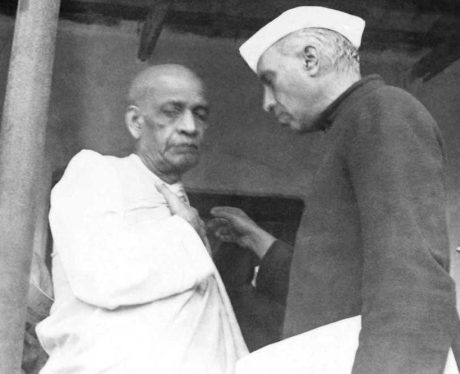
Filed under: china, india, tibet | Tagged: chinese invasion of tibet, indian nationalism, sardar patel |


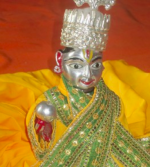









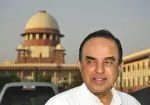


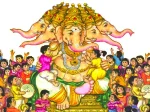



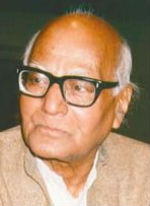






check out some criticism by Rajaji
LikeLike
It’s a shame that weak leadership allowed that to happen. Excellent article.
LikeLike
I totally agree with your analysis and conclusions.
LikeLike
Excellent!
LikeLike
What is your view on the saying ‘Congress has looted India for 70 years’?
Vijay Raheja replies: It isn’t the looting of wealth that bothers me so much as the sheer fact that the Congress merely replaced the Brits in some ways – they just became masters of the same, broken, weak people, who were simply willing to suck up to authority. Nobody gave India confidence! This is the part that bothers me so much, especially with MK Gandhi’s style of ‘winning’ us freedom by giving the enemy higher moral ground.
So, India has grown up as an apologetic impotent nation, where our children are taught to revere impractical, passive, cowardly notions like non-violence, when everything in nature tells us to fight to survive. Of course I know the philosophy of not fighting because of being strong. But this comes from mastery, not shamelessly bowing to masters!
So, we saw a change of guard. The Brits went, and new masters came in the form of the Congress Party. Hierarchies remained, the class system remained, and subservience remained. Where the heck did all the dynamism go?
Then we were thrown into a socialist mindset, people waiting for alms from government wealth redistribution programs instead of being empowered. We got protectionist policies, that prevented prosperity and competition, throwing us away from a path of a meritocracy. Hindustan Motors was started around the same time as Toyota, and Tata Steel started around the same time as Nippon Steel. Nippon Steel produces around five times as much as Tata Steel without native resources of ore. No need to talk about Hindustan Motors and Toyota. Japan coming out of twin nuclear strikes was devastated way more than India under the Brits. Do we need to compare how different the growth paths of these two nations have been?
Only when thousands died did we start the Green Revolution. Only when China attacked us did we realize we need to become militarily stronger. Only with our backs against the wall, did India liberalize its economy. Under the Congress, every move we have made towards any kind of development has come under inevitable circumstances, with our backs against the wall.
India was never allowed to be truly independent, strong, and proud of its people’s full potential. No wonder so many of us left in droves and thrived in various countries elsewhere. This is the loot I would feel most wronged by – denying India its best talents and minds, because we didn’t create the conditions for dignified development.
Incredibly, the immense sacrifices of our fighting heroes were also swept aside under this avalanche of worship for Gandhiji. Why? So that the Brits would feel good? The Congress party was reporting to British Intelligence for 5 years after we became an independent country, about Subhash Bose’s family’s movements. During a criminal probe of the Bofors scandal, the Congress External Affairs minister delivered a letter to a foreign body to deny evidence and cooperation to an Indian investigating agency. Years later, a whole bunch of Congress members and their cronies used the letterhead of the Indian Parliament to petition the USA to not issue a visa to Narendra Modi, the man who would become Prime Minister. It is these bunch of ass lickers that I want to hang or burn over a slow fire.
The Congress has a clear obsession with white people and a need to constantly please them. When Hillary Clinton asked India to wean itself off Iranian oil, the Congress government promptly obliged, even though Iran and India have been close friends for a long time. No surprise then that pasta aunty from Italy is their supremo. Think she would have got the same respect if she had been a Nigerian black woman? I don’t think so. That’s how deeply ingrained the slave mentality is in the ranks of the Congress.
It is the loot of India’s pride, dignity, dynamism and die hard spirit that bothers me much much more than the loot of wealth. This country produced enough wealth to support the British Empire for 200 years. It can easily produce much more to ensure prosperity, health and well being for its own people. This is an abundant, powerful country, that has been prevented from being a developed, forward thinking, awesome nation that could by now have been an example for the world.
If India has been a weak, apologetic nation for so long, it’s precisely because of the Congress. Why do we have to put up with these weasels and the fools who are aligning with them? I could even tolerate a ruthless, despotic, dictatorial mindset. It is this slimy, backstabbing, self serving Lutyens mindset that really irks me. I would give anything to destroy this smugness, decimate it, and put it firmly behind us.
The economic loot is nothing compared to this, but we will bloody well make them pay for all of it
Vijay Raheja
LikeLike